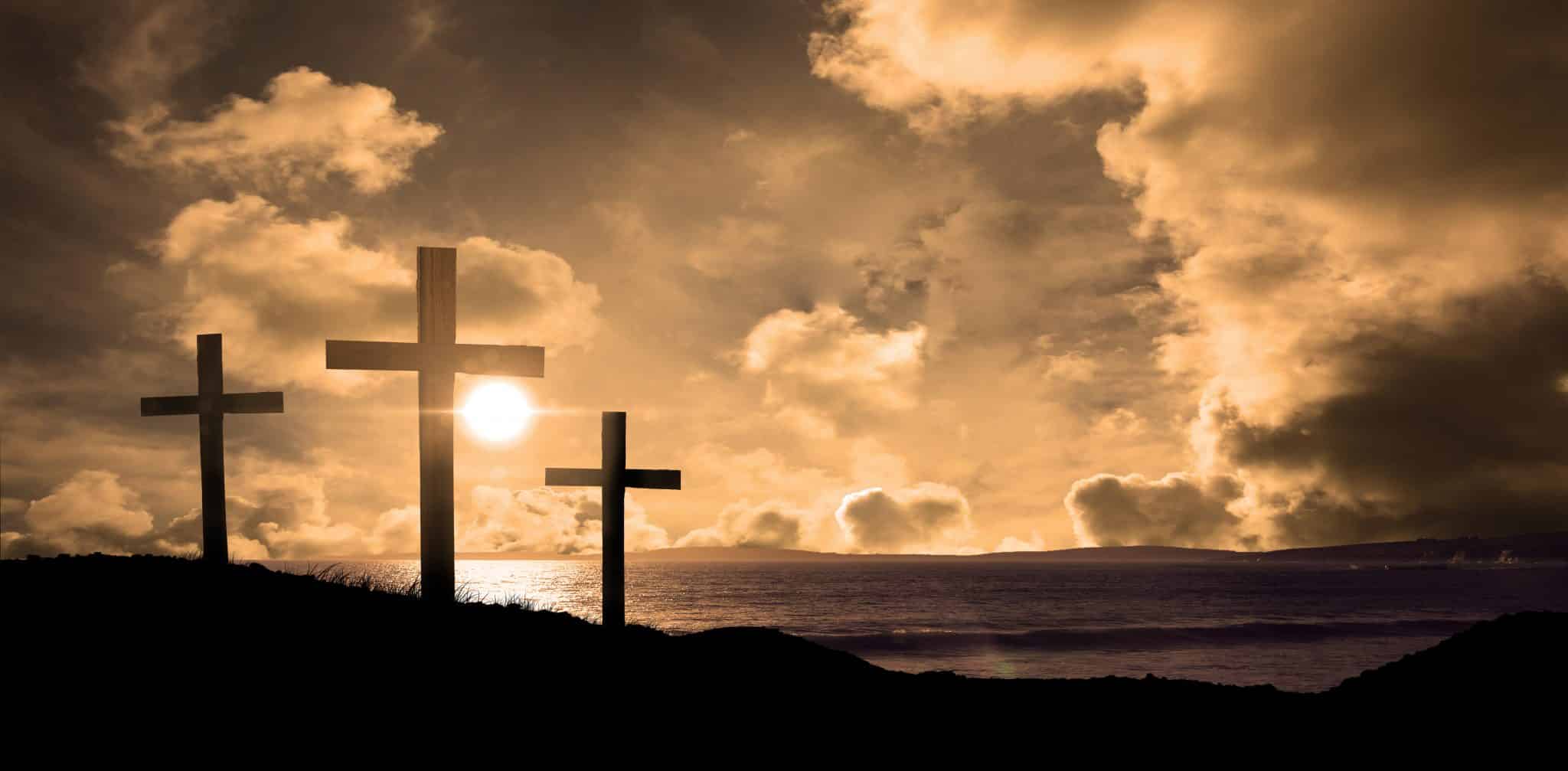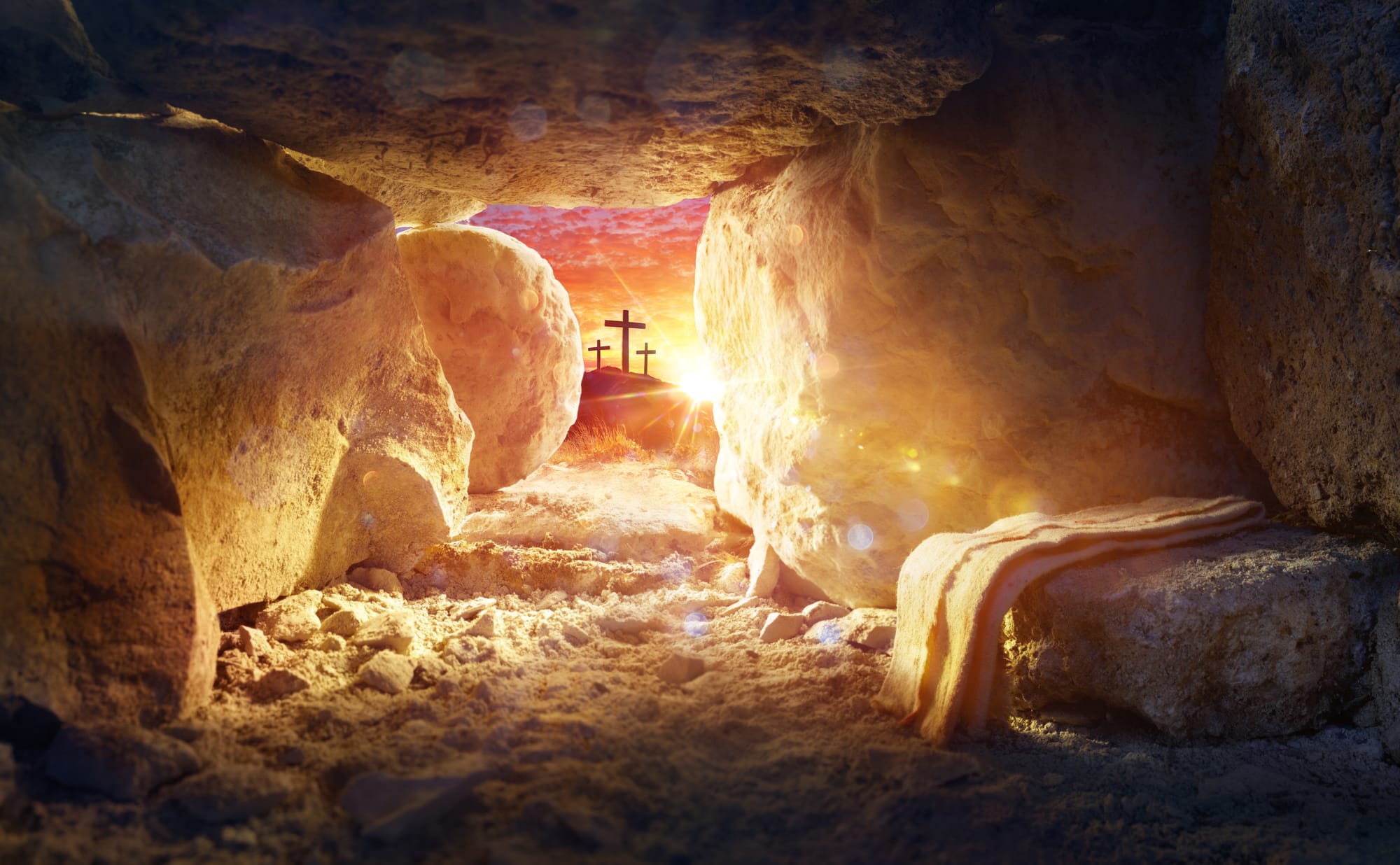The tensions of Good Friday
This Good Friday, Salt&Light invites you to find out more about the abundant life Jesus freely offers us.
Sharyn Ng // March 25, 2024, 9:31 pm

Photo from Depositphotos.com.
Death.
We are uncomfortable in its presence, and we try everything we can to avoid it. We even avoid talking about it. We use a variety of euphemisms instead, as if we’re afraid that Death itself might overhear.
Passed away. Departed from us. Gone to a better place. This phenomenon cuts across time and space: In ancient Israel, we read of death as being “gathered to his people” (Genesis 25:8) and “rest(ing) with your ancestors” (2 Samuel 7:12).
As Christians, this list expands with more “theological” descriptions, like, “was called home” and “promoted to glory”. These descriptions seem to take away the sting of death, even sounding remotely positive.
Death is painful and scary. In the face of death, we often feel both helpless and hopeless.
There are theological reasons for this, that have to do with the day we call Good Friday. Yet, if you have lost a loved one recently (or even not-so-recently), this positive spin on death often feels so far from reality.
Death is painful and scary. In the face of death, we often feel both helpless and hopeless.
Just a week ago, we received news that a sister-in-Christ had returned to the Lord after a long battle with cancer.
As I write, my family is planning a trip to visit my elderly grandma in Malaysia this weekend. Death is a scary reality we all have to grapple with, as grandma battles ailments that assault her frail body.
We don’t know when or how it will happen, only that it will, eventually, happen — not just for her, but for the rest of us too.
Grappling with the tensions of the cross
As Christians, how do we grapple with the opposing realities of death?
And, as we commemorate Holy Friday, what does the cross tell us about this painful tension?
The cross is a place of suffering … and healing
The cross was a cruel form of torture and execution, reserved for the worst of criminals. Jesus was flogged, forced to carry the cross until he could no longer bear it, and then was nailed to the cross. He experienced real physical suffering and pain.
Yet, in light of the resurrection, the cross is a place of ultimate healing. We see a glimpse of this when Jesus, in the face of arrest, chose to heal the ear of the high priest’s servant (Luke 22:51).
This is a mere shadow of the ultimate healing that the Cross ushers in — the intra-personal healing of body, mind, and spirit; the interpersonal healing of broken relationships; and the systemic healing of unjust and oppressive systems in the world.
The Cross is a place of torment … and forgiveness
The cross wasn’t just a place of physical pain, it was also accompanied by psychological and emotional torment. Jesus was derided, mocked and reviled by the religious leaders, by passers-by and even by the robber who was crucified with him (Matthew 27:39–44).
The cross was also a place of wrath, where God turned his face away. My God, my God, why have you forsaken me? Jesus laments from the depths of his soul. It wasn’t just the voices of the crowd that he had to contend with. On the Cross, Jesus — bearing our sins — experienced the wrath of God.
Yet, in light of the resurrection, the cross is a place of ultimate forgiveness. Jesus points to this when he prays on the cross, “Father, forgive them, for they know not what they do” (Luke 23:24). Thus, we find forgiveness for our all sins — past, present, and future — at the cross.
The cross is a place of injustice … and mercy
In some sense, there was no real reason for Jesus’ crucifixion. The trial was a sham, and Jesus was sentenced to death though there was no guilt found in him (Luke 23:4).
The injustice was epitomised in the release of Barabbas, the notorious prisoner who had committed murder (Matthew 27:16, Mark 15:7), in Jesus’ stead.
Yet, the substitution of Barabbas with Jesus meant a new lease of life for Barabbas. In light of the resurrection, we too are like Barabbas.
The cross, for us, means a new lease of life — not just life here in this imperfect world, but life forevermore!
The cross is a place of despair … and hope
For Jesus’ family and friends, the cross was undoubtedly a place of despair.
Having followed and loved Jesus, they experienced acutely the sting of death as it tore them away from the one they loved and flung them into a period of grief and confusion.
Even if it had been forewarned by Simeon (Luke 2:34–25), the intense anguish and despair that Mary would have had to face is unimaginable.
Yet, in light of the resurrection, the cross is now a place of hope. Because Jesus rose from the dead, we have hope that death will ultimately be defeated. The hope that was unbeknown to Jesus’ family and friends is now available to us all!
The cross is a place of evil … and good
Ultimately, the cross is both a culmination of all that is evil — betrayal, injustice, suffering, death — and, in light of the resurrection, all that is good — forgiveness, justice, love, hope, eternal life.
The good does not negate the evil and, especially in this life, we continue to contend with and mourn the evil we see and experience in the world. But neither does the evil negate the good. We hold these two realities in constant tension in this life.
Holy Friday is only truly good in light of Resurrection Sunday. Yet even on this dark day we see glimpses of light — the healing of the servant’s ear (Luke 22:49–51), the welcome of the sinner into paradise (Luke 23:39–43), the tearing of the temple curtain in two (Mark 15:33–39).
But let us not be too quick to jump into the goodness of Holy Friday. Let us acknowledge and grieve all that was evil about this Holy Friday … so that we can fully appreciate all that is good about Good Friday – and rejoice!
This devotion was first published by Graceworks and is republished with permission.
RELATED STORIES:
It is finished: Do tough times challenge the “good” in Good Friday?
We are an independent, non-profit organisation that relies on the generosity of our readers, such as yourself, to continue serving the kingdom. Every dollar donated goes directly back into our editorial coverage.
Would you consider partnering with us in our kingdom work by supporting us financially, either as a one-off donation, or a recurring pledge?
Support Salt&Light


